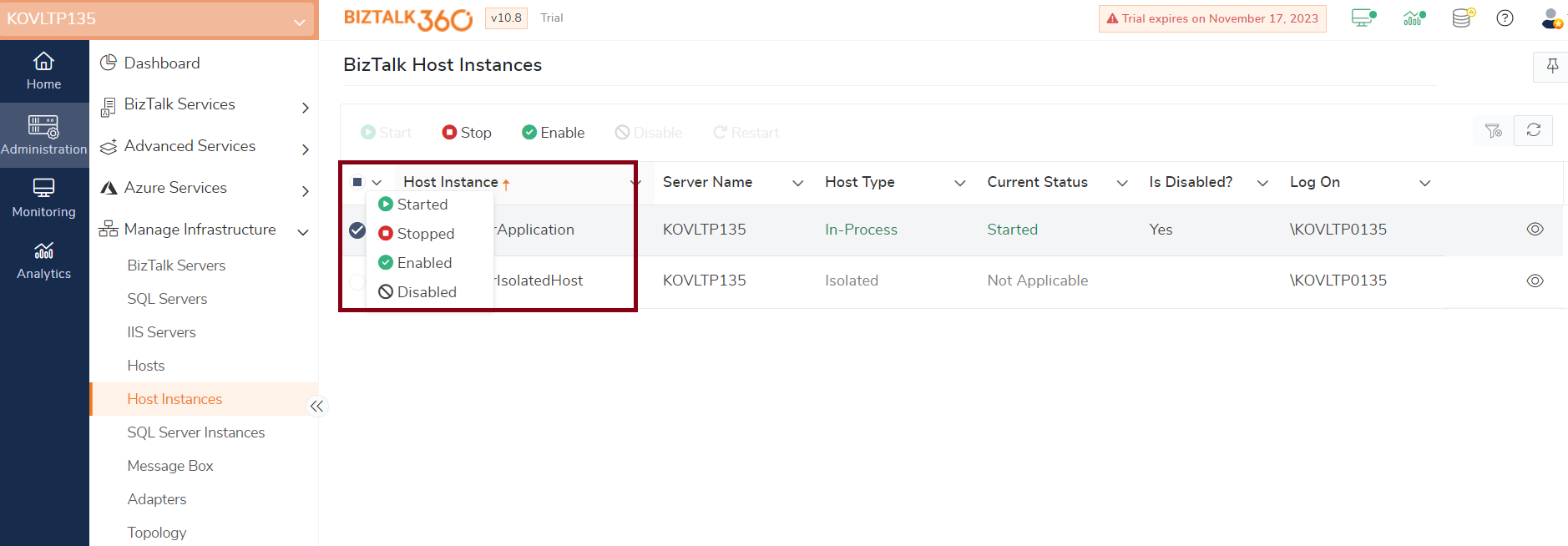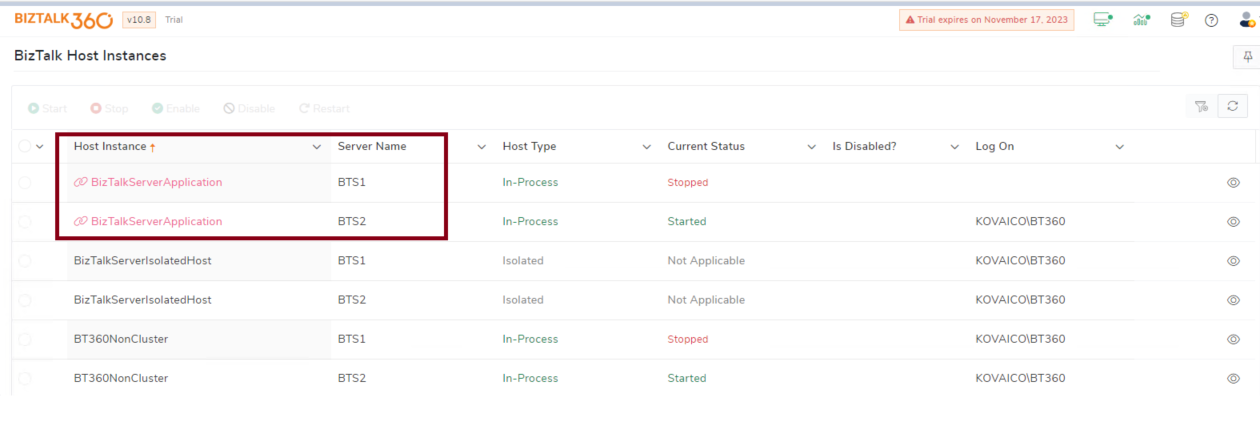A host instance is the physical installation of a host in a BizTalk Server. It is the component where the message processing, receiving and transmitting occurs. A BizTalk Server can support multiple host instances.
Follow the steps as shown below to view the Host Instances information:
- Log in to the BizTalk360 application and navigate to the Manage infrastructure->and select Host Instances.
- In the Host Instances page you will find all the host instances that have been created in the BizTalk Server.
- Here you have a option to start/stop/restart and enable/disable a host.
- when performing Start/Stop/Restart and Enable/disable, you can view operation summary in the panel.
- On clicking the eye icon you can view the properties of the Host Instances.
A user can perform the required operation by selecting the check boxes against the Host name(s) and clicking on the Operation buttons (Start/Stop/Restart/Enable/Disable) at the top of the grid.

Filter Implementation for Grids
To do a better search from the grid columns a Filter capability is implemented for the grid columns. A user can filter the data from the respective rows according to their needs. The following types of filters have been implemented in the grid columns of the Host Instances:
- Status Filter
- Text Filter
Status Filter
The status filter is used to filter Status columns. The drop-down of the filter shows values according to the statuses that are displayed in the column. The user can select the status from the drop-down and filter it accordingly.

Text Filter
This is the most commonly used filter. Using this filter, a user can perform a text-based search the text filter has the following options:
- Is equal to
- Is not equal to
- Starts with
- Ends with
- Contains
- Does not Contains
- Is Null
- Is not null
- Is Empty
- Is not Empty
Host Instances in High availability scenarios :
If a server or host instance becomes unavailable due to a hardware failure or other issue, BizTalk Server supports switchover mechanisms. A backup host instance can be designated to take over the workload automatically when the primary instance fails. This minimizes downtime and ensures message processing continuity.
Cluster Host Instances:
The Host instances in cluster can be configured to balance the processing load. The clustered Host instances are indicated with colors. The Windows failover cluster setup indicates that BizTalk messages are processed when one of the BizTalk Servers goes down. Clustered Host Instances ensure that business transactions are seamlessly handled by host instances on the passive cluster node when the active host instances become unavailable.
